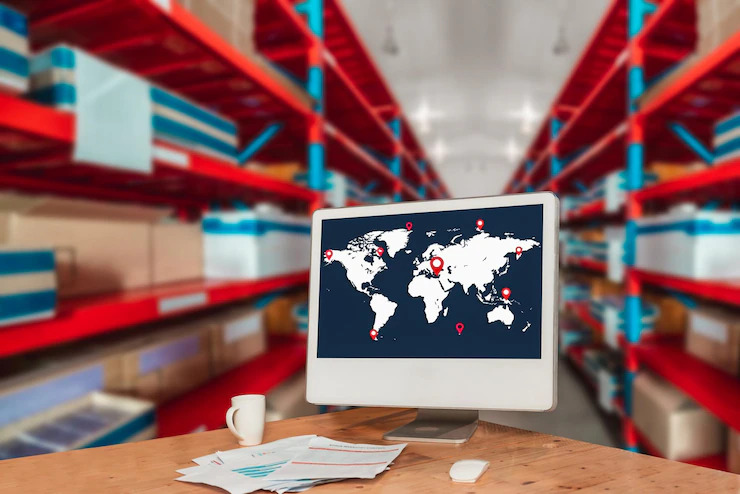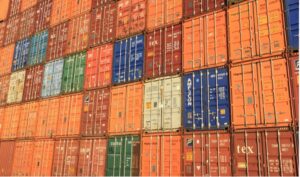When it comes to expediting the delivery of your goods from China to Germany, air freight emerges as the undisputed champion. This mode of transport prioritizes speed, ensuring your cargo reaches its destination in a matter of days, compared to weeks or even months with traditional sea freight. But the advantages extend far beyond mere velocity. This comprehensive guide delves into the intricacies of cheap air freight from China to Germany, empowering you to make informed decisions for a seamless and cost-effective shipping experience.
Benefits of Using Air Freight for Shipping Goods

- Unmatched Speed: Air freight reigns supreme in terms of delivery times. Your shipment will arrive in Germany within a timeframe of 3-7 days, significantly faster than sea freight options. This rapid transit is especially advantageous for perishable goods, time-sensitive materials, and situations demanding a swift response to market fluctuations.
- Enhanced Reliability: Air freight boasts a high degree of reliability, minimizing the risk of delays and disruptions that can plague other shipping methods. Scheduled flights operate with greater predictability, ensuring a more consistent arrival timeframe for your cargo.
- Reduced Risk of Damage: Air travel offers a smoother journey compared to ocean voyages. This translates to a lower likelihood of damage due to factors like moisture, rough seas, or extended handling times. Delicate and fragile items benefit greatly from the controlled environment of air freight.
- Improved Inventory Management: Faster delivery cycles facilitated by air freight enable businesses to maintain leaner inventory levels. This translates to reduced storage costs and the ability to respond swiftly to changes in customer demand.
- Greater Visibility and Control: Modern air freight services provide robust tracking systems, allowing you to monitor the real-time location and progress of your shipment throughout its journey. This enhanced visibility empowers you to manage your supply chain effectively and anticipate arrival times with greater accuracy.
Key Factors to Consider When Choosing an Air Freight Service Provider

Selecting the right air freight partner is paramount for a successful shipping experience. Here are some crucial factors to weigh in during your decision-making process:
- Experience and Reputation: Opt for a freight forwarder with a proven track record of handling cheap air freight shipments between China and Germany. A reputable company will possess an in-depth understanding of customs regulations, trade routes, and industry best practices.
- Service Offerings: Evaluate the range of services offered by potential providers. Look for a company that caters to your specific needs, such as customs clearance assistance, cargo insurance, door-to-door delivery options, and specialized handling for delicate or hazardous cargo.
- Competitive Rates: While cost is certainly a consideration, prioritize value over the cheapest option. Secure quotes from several providers and compare their service offerings before making a decision.
- Communication and Transparency: Choose a freight forwarder that prioritizes clear and consistent communication. They should be readily available to address your questions and concerns throughout the shipping process.
- Technology and Tracking: In today’s digital age, a robust online tracking platform is essential. Ensure your chosen provider utilizes advanced technology that enables you to monitor your shipment’s progress in real-time.
Understanding the Air Freight Process from China to Germany

The cheap air freight process from China to Germany can be broken down into several key stages:
- Pre-Booking and Cargo Preparation: Contact your chosen air freight forwarder to discuss your specific shipment details and secure a reservation. Ensure your goods are properly packaged and labeled according to international air freight regulations.
- Customs Clearance: Navigating customs procedures can be complex. Your freight forwarder will guide you through the necessary documentation and ensure all regulations are met to avoid delays at customs.
- Collection and Inland Transportation: The freight forwarder will arrange for the collection of your cargo from your designated origin point within China. It will then be transported to the departure airport for loading onto the aircraft.
- Air Transportation: Your shipment will embark on its journey to Germany aboard a dedicated cargo plane or a passenger aircraft with cargo hold capacity.
- Arrival, Customs Clearance, and Delivery: Upon arrival in Germany, your cargo will undergo customs clearance procedures. Once cleared, it will be transported to your designated delivery point within Germany.
Efficient Packaging and Labeling for Air Freight Shipments

Proper packaging is paramount to ensure the safe arrival of your goods. Here are some key guidelines for efficient packaging of air freight shipments:
- Use sturdy and high-quality packaging materials: Cardboard boxes, wooden crates, and pallets are commonly used for air freight. Select materials that can withstand the rigors of air travel, including potential stacking and handling.
- Secure your cargo effectively: Utilize appropriate packing materials like dunnage, bubble wrap, and void fill to prevent items from shifting during transport.
- Clearly label your packages: Ensure all packages are clearly labeled with essential information, including:
- Consignee (receiver) name and address
- Shipper (sender) name and address
- Number of packages in the shipment
- Gross weight and dimensions of each package
- A clear and concise description of the contents
- Any special handling instructions (e.g., “Fragile,” “Keep Upright”)
Customs Clearance and Documentation Requirements for Air Freight
Customs clearance can often be a hurdle for those unfamiliar with the process. A reliable freight forwarder will handle the majority of the legwork, but it’s still beneficial to have a basic understanding of the documentation required:
- Commercial Invoice: This document details the value, quantity, and description of your goods.
- Packing List: A detailed breakdown of the contents of each package within your shipment.
- Bill of Lading (BOL): A legal document issued by the carrier serving as a receipt for your cargo and a contract of carriage.
- Certificate of Origin: This document certifies the country where your goods were manufactured.
- Import License (if applicable): Certain goods may require an import license from German authorities.
Your air freight forwarder will advise you on any additional documentation specific to your shipment.
Tracking and Monitoring Your Air Freight Shipment

Modern air freight logistics are equipped with sophisticated tracking systems. These systems enable you to monitor the real-time location and progress of your shipment throughout its journey. This level of transparency offers several advantages:
- Enhanced peace of mind: Knowing the precise location of your cargo reduces anxiety and allows for better planning.
- Proactive communication: With real-time tracking, you can anticipate potential delays and communicate effectively with your customers or business partners.
- Improved logistics management: Tracking data empowers you to optimize your supply chain and identify areas for improvement.
Most reputable air freight forwarders provide online access to a user-friendly tracking portal. This portal allows you to enter your shipment details and view its current location, estimated arrival date, and any relevant updates.
Tips for Cost-Effective Air Freight Shipping
While air freight offers undeniable advantages in terms of speed and reliability, it can also be a more expensive option compared to sea freight. Here are some strategies to ensure you’re getting the most value out of your air freight budget:
- Plan and consolidate shipments: Consolidate smaller shipments into larger ones whenever possible. This can significantly reduce your per-unit transportation costs.
- Optimize packaging: Utilize space efficiently by ensuring your packaging is appropriate for the size and weight of your goods. This minimizes the dimensional weight, which can often be a significant cost factor in air freight.
- Compare quotes and negotiate: Obtain quotes from multiple air freight forwarders and compare their rates and services. Don’t be afraid to negotiate for a competitive price based on your shipment volume and frequency.
- Explore alternative airports: Consider the feasibility of utilizing smaller, less congested airports that may offer more competitive rates.
By following these tips and partnering with a reliable air freight forwarder, you can streamline your shipping process from China to Germany while ensuring cost-effectiveness.




